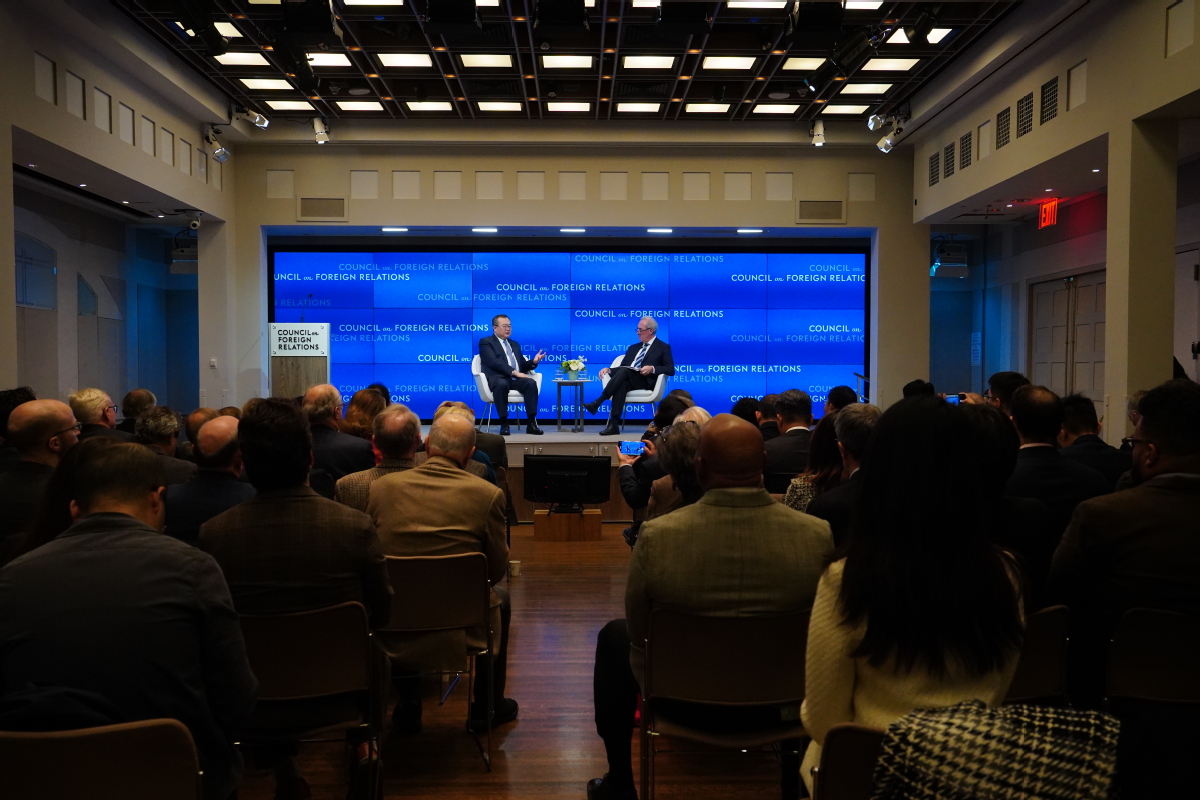Official: China won't upend global order


A senior Chinese official on Tuesday reiterated China's stance on not engaging in a cold war, emphasizing the value of peace and a commitment to maintaining the current international order.
"People in Asia have our own way of dealing with each other, which values peace above everything else, and seeks peaceful solutions for disputes," said Liu Jianchao, head of the International Department of the Communist Party of China (CPC) Central Committee, who also called for strengthening dialogue and communication between China and the United States.
"China does not seek to change the current international order, much less reinvent the wheel by creating a new international order," Liu said. "We are one of the builders of the current world order and have benefited from it.
"We will continue to uphold the international system with the UN at its core, the international order underpinned by international law, and the basic norms governing international relations," he said.
Liu led a CPC delegation on a visit this week to the US, where he was invited to deliver a speech at the Council on Foreign Relations (CFR) in New York.
Liu's visit took place around two months after President Xi Jinping met with US President Joe Biden in California on Nov 15. This year also marks the 45th anniversary of diplomatic relations between China and the United States.
"Looking back, we see that this relationship has brought tremendous benefits to the two peoples and other peoples in the world," said Liu. "What is needed now is not waiting or debating, but to act upon it, which will strengthen dialogue and communication."
The speech also was delivered before the upcoming regional leadership election in Taiwan on Jan 13. Liu stressed that China hopes that the United States will abide by its commitment not to support "Taiwan independence".
"We take seriously the statements of the United States not supporting
'Taiwan independence', and we hope that the US side will honor this commitment, which will expand mutually beneficial cooperation," Liu emphasized.
"Mutually beneficial cooperation brings benefits to our two peoples and certainty to our relationship. This is what we have learned from the past 45 years of interactions, and something we must continue in the future," he added.
Liu also addressed China's efforts to alleviate the concerns of American businesses, aiming for a more equitable and non-discriminatory business environment.
Going forward, China will continue to expand institutional opening-up with regard to rules, regulations and management to create a market-oriented, law-based business environment that meets the international standard, he said.
China will also try to address the concerns of the American businesses such as market access to the service sector and cross-border flow of data.
"In the same line, we hope that the United States keeps its markets open and provides the Chinese companies with an equitable, just, non-discriminatory business environment as well," he said.
For China's domestic policy, Liu emphasized the need to shift from a growth model focused on speed to one that prioritizes quality.
Despite achievements, China's development "remains imbalanced and insufficient", Liu said. "The extensive growth model that used to be followed that mainly pursued high speed resulted in many problems.
"We therefore have to adjust the growth model, putting more emphasis on quality rather than speed. High quality of the development must be driven by innovation and technological progress," he said.
China stands ready to work together with the United States to truly implement the San Francisco summit visuals and bring China-US scientific and technological exchanges back to the right track, said Liu.
He highlighted the importance of balancing security and development, suggesting that a secure environment is crucial for high-quality development.
"Will China ignore development as it talks more about security?" Liu asked. "Indeed, China has highlighted the importance of security just as other countries. We believe high quality of development can only be achieved in a highly secure environment.
"But what we pursue is a balanced and positive interplay between security and development," he said. China will never ignore development, as it holds the key to solving the problems and challenges in China, Liu said.
"Some people argue, as the largest emitter of greenhouse gases, China should bear more responsibility in addressing climate change," said Liu.
"Climate change is caused by both current and historical emissions as developed countries contribute to over 70 percent of the global total accumulated emissions, they should shoulder greater responsibility," he said.
"Yet, China is trying hard to make the sharpest reduction in carbon intensity in the world and achieve carbon peaking and carbon neutrality in the shortest time span in world history," he said.
Liu on Tuesday also answered questions from the audience at the CFR about China's view of the global order, China-Russia relations, the Ukraine crisis, the Israeli-Palestinian conflict, the safety of navigation in the Red Sea, nuclear disarmament, Hong Kong, as well as bias in Western media toward China, and the Taiwan question.
As China's strength continues to grow, it will naturally become more powerful in its economy, industry and other areas as well, Liu said.
"But China's intention is basically to deliver a better life for the Chinese people. We don't really have any hidden agenda," he said.
Liu also met with United Nations Secretary-General Antonio Guterres at UN headquarters in New York on Tuesday.































